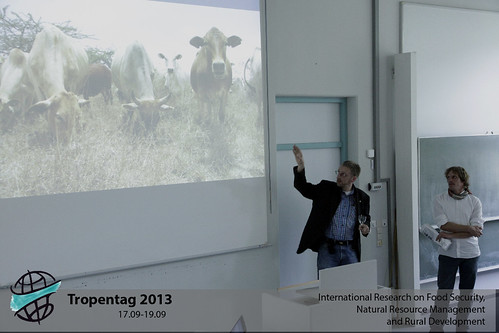Madagascar
The More Mobility, the Better for Extensive Livestock Systems
Wed, 09/18/2013 - 16:42 — Vince Canger
In some of the most marginal areas of the world where arable farming is not practical, people cope and are able to survive through the raising of animals. Usually, these systems are highly mobile, meaning the livestock keeper must follow or drive their animals to different pastures and rangelands. Often, such systems are neglected or looked at as backwards, traditional or somehow out-of-style. But this year's Tropentag held a full session devoted exclusively to oral presentations on research in extensive livestock production. Here are a couple results from the session... (read more)


Oral presentation II | Forest management (part 1)
Thu, 09/16/2010 - 12:18 — De-Registered User
After got introduced to the palm oil production potential in Tanzania by Anna Segerstedt from the Institut for Environetal Economics and World Trade at the Leibnitz University Hannover with respect to sustainability standards the point was clear: there is no chance under the assumed conditions to produce palm oil for the export market as well as for label production due to export barriers and costs linked to certification respectively. Ms Segerstedt found however, that according to her results the palm oil production for the local market is competitive.
Zora Lea Urech from the Department of Environmental Sciences at ETH Zurich outlined in her interesting presentation possible drivers leading to further deforestation in the eastern part of Madagascar taking into consideration the main components of the livelihood strategies of small farm-households. The complex land tenure system, next to other factors, hinders a sustainable use of the forest ecosystems and need to be further investigated.




